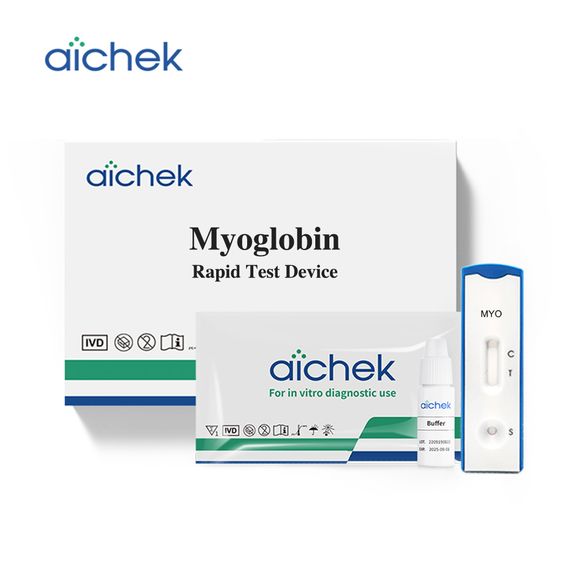
Get A Quote
The Myoglobin Test Tells Whether You Are Exercising Too Much to Help Prevent Kidney Damage
Many of us are eager to kick-start our fitness resolutions and embrace a healthier lifestyle. However, in our pursuit of rapid results, we often fall into the trap of overexerting ourselves with intense workouts. This overzealous approach can lead to muscle cell ruptures and release substances like myoglobin into the bloodstream, which can be harmful to our kidneys. In this blog post, we will delve into the importance of a gradual training approach and the significance of the myoglobin test in preventing kidney damage.
Understanding Rhabdomyolysis: When Muscles Go Haywire
Rhabdomyolysis, or "rhabdo" for short, is the medical term for skeletal muscle cell rupture. When muscles burst, their intracellular contents, including enzymes, electrolytes, and proteins like myoglobin, are released into the bloodstream. Myoglobin, a large red protein, can block the kidney's filtration system, leading to kidney plumbing issues. It can also produce toxic byproducts that harm the kidneys, with severe cases even causing kidney failure. This condition is not just limited to elite athletes; even noncompetitive individuals engaging in new or excessive physical activities can experience symptomatic rhabdo.
Team Rhabdo on the Rise: The Dangers of "Too Much, Too Soon"
Recent studies have revealed alarming clusters of rhabdomyolysis cases in collegiate sports teams and noncompetitive athletes alike. The trend of "too much, too soon, too fast" in fitness routines has led to an increase in symptomatic rhabdo cases across various sports, including football, swimming, soccer, and even non-sporting activities like weightlifting and gardening. The key to preventing rhabdo is to adopt a gradual training approach with sufficient recovery periods in between.
Recognizing the Signs: When to Seek Medical Attention
It is essential to be aware of the warning signs of rhabdomyolysis, especially after intense workouts. Excruciating muscle pain, swelling, nausea, vomiting, and dark or sparse urine are common indicators that necessitate medical examination. Various risk factors, such as exercising in extreme temperatures, dehydration, and certain dietary practices, can increase the likelihood of developing rhabdo.
The Myoglobin Test: A Vital Tool for Kidney Health
To protect our kidneys from potential damage, the myoglobin test becomes a crucial tool. This test measures the levels of myoglobin in the blood, helping identify early signs of muscle cell rupture and the risk of kidney complications. Regular myoglobin testing can serve as a preventative measure, guiding athletes, coaches, and fitness enthusiasts to tailor their training routines for optimal results without compromising their health.
Conclusion
Embracing a healthier lifestyle and achieving fitness goals should always be a priority, but never at the expense of our well-being. Manufacturers like Aichek prioritize the safety and health of their customers, providing products and support for a balanced approach to fitness. With smart training strategies and the use of diagnostic tools like the myoglobin test, we can ensure that our fitness journey remains enjoyable, rewarding, and most importantly, safe.
Statistics show that the number of rhabdomyolysis cases related to overexertion has been on the rise in recent years. As distributors, it is crucial to promote safe training practices and emphasize the importance of gradual, sustainable fitness routines to our customers. Together, we can help individuals achieve their fitness aspirations while safeguarding their kidney health. Let's make 2023 a year of smart and responsible fitness with Aichek!

